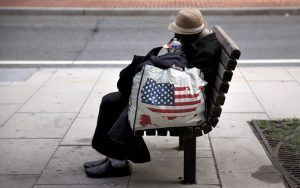 Richard V Reeves at Aeon:
Richard V Reeves at Aeon:
The Indian economist and philosopher Amartya Sen observed that everybody is in favour of some kind of equality – the real question is, ‘Equality of What?’ (1979). Relational equality, based on equality of respect, is distinct from two other kinds of equality: basic equality based on equality of legal rights; and material equality, based on equality of resources.
Basic equality, sometimes referred to as deep or moral equality, underpins human rights, which are, as a matter of principle, universal and unconditional. In his book One Another’s Equals (2017), the New Zealand legal philosopher Jeremy Waldron draws on an Anglican prayer for ‘all sorts and conditions of men’, to emphasise basic equality. He argues that ‘we believe there is just one sortal status – one kind of human being’, even if people exist under different conditions, for example in terms of their economic situation. To treat a person differently because they are a woman, or have darker skin, negates this principle.
But basic equality does not ensure or demand relational equality based on respect. I can defend the right of a criminal to a fair trial, without respecting him as my equal in any broader sense. Basic equality, then, generates a rather thin, legalistic egalitarianism.
Material equality, by contrast, is focused on the second part of Waldron’s prayer, the ‘conditions’ of men. The currency this time is resources, typically economic ones. Egalitarian arguments are here focused on the justification for reallocating resources between person A and person B. But no account is taken of the relationship between person A and person B. In contrast to both basic equality and material equality, relational equality is created between people, in our relationships with each other.
More here.
